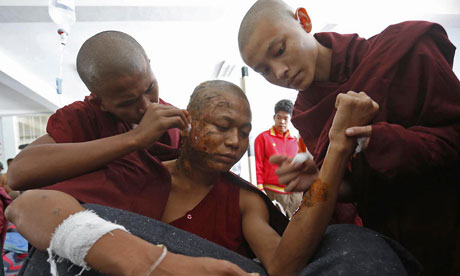By Ryan Aliman
Impunity Watch Reporter, Africa
JUBA, South Sudan – The Jonglei area of South Sudan is currently in a state of humanitarian emergency due to the ongoing ethnic bloodshed, according to international aid group, Medecins Sans Frontieres (MSF) or Doctors Without Borders.

In a report published on Tuesday, the MSF called attention to the “devastating impact” of the ongoing violence on the lives and health of tens of thousands of people living in South Sudan’s Jonglei state.
The MSF special report, “South Sudan’s Hidden Crisis”, noted that civilians have become targets of attacks that are mainly caused by inter-communal, cattle rustling, fighting between government and rebels and a government disarmament process.
Based on the findings of the MSF, women and children make up more than 50 percent of the gunshot injury victims treated by the MSF teams. One of their patients recalled her experience last March where she witnessed children thrown into a fire. “If the child can run, they will shoot them with the gun; if they are small and cannot run, they will kill them with a knife,” she told the humanitarian agency. Children as young as four months old are among the victims, according to the report.
Cases of violence are also likely to increase as the dry season approaches.
“What we are seeing is an emergency; the lives and health of Jungle’s population are hanging by a thread. The dry season is now upon us, making movement around the area possible again, and we fear a further spike in violence, injury and displacement,” said Chris Lockyear, the MSF’s Operational Manager.
The violent clashes between South Sudan army, the Sudan People’s Liberation Army (SPLA) and a militia group in Jonglei have also caused massive displacement and insecurity in the region. Entire communities fled their homes to escape the conflict and to seek refuge in safer towns. Due to lack of shelter, food and safe drinking water, however, they have become susceptible to diseases like malaria, pneumonia, malnutrition and diarrhea.
Another problem pointed out by the MSF report is that healthcare facilities have likewise been targeted. Hospitals and clinics are usually looted and destroyed.
As it highlighted the gravity of the humanitarian crisis Jonglei’s population faces, the MSF called on the South Sudan government, the UN, donors and other humanitarian organizations for support “to ensure that there is adequate emergency response capacity.”
“Today we are sharing the medical consequences as our teams see them on the ground,” added Lockyear. “Jonglei is in the grip of an emergency. MSF remains committed to providing neutral and impartial healthcare in Jonglei, however we fear there may be even more medical needs among people who cannot reach our clinics – due to sheltering in the bush or for fear of travelling to seek care. MSF calls on all armed groups to respect medical humanitarian facilities and staff.”
For further information, please see:
All Africa – South Sudan: Juba Unveils Water Project to Mitigate Conflicts in Jonglei – 28 November 2012
All Africa – South Sudan: Silent Violence of Hidden Crisis in Jonglei – 27 November 2012
CBS News – Aid group raises concern on South Sudan violence – 27 November 2012
Doctors Without Borders – South Sudan: Displacement and Destruction of Health Facilities in Jonglei State – 27 November 2012
Doctors Without Borders – South Sudan’s Hidden Crisis – 26 November 2012


